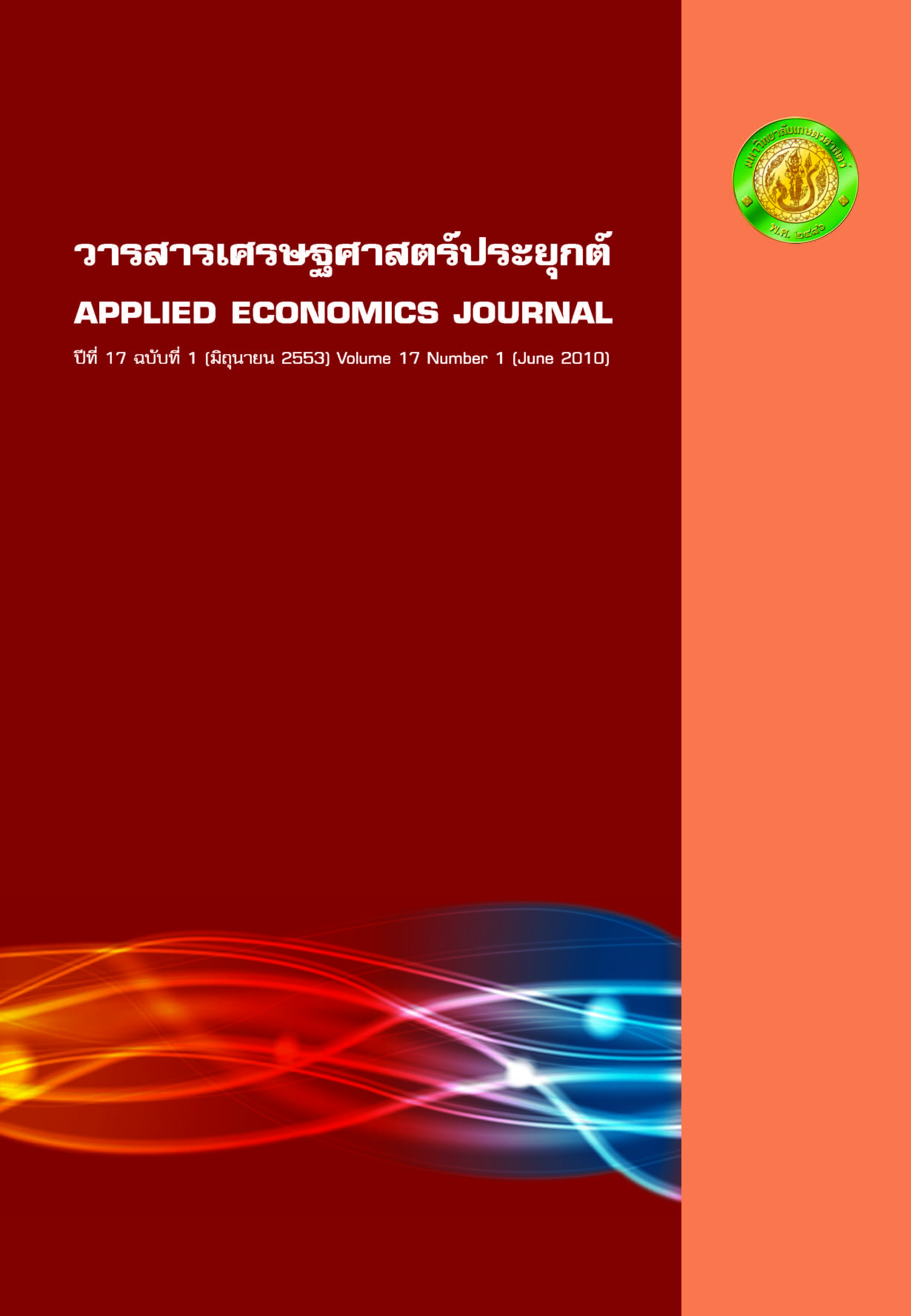ฐานะการคลังของโครงการหลักประกันสุขภาพถ้วนหน้าในประเทศไทย
Main Article Content
Abstract
บทคัดย่อ
การศึกษานี้คาดการณ์ฐานะทางการคลังของโครงการหลักประกันสุขภาพถ้วนหน้าของประเทศไทย โดยพิจารณาจากแนวโน้มรายรับหรืองบประมาณที่จัดสรรจากรัฐบาลเปรียบเทียบกับค่าใช้จ่ายของโครงการฯ ที่จะเกิดขึ้นภายใต้สถานการณ์ต่างๆ ที่กำหนด จากสถานการณ์ฐานพบว่า โครงการฯ มีฐานะทางการคลังขาดดุลในระดับต่ำ แต่มีแนวโน้มเพิ่มขึ้นในระยะยาว อย่างไรก็ตามจากรายงานการสำรวจอนามัยและสวัสดิการ พบว่า ประชาชนยังเข้าใช้สิทธิประโยชน์ทางสุขภาพไม่เต็มที่ จากข้อมูลนี้ทำให้วิเคราะห์ได้ว่าฐานะการคลังที่เป็นจริงในปัจจุบันน่าจะเกินดุลอยู่ระดับหนึ่ง นอกจากนี้ภายใต้สถานการณ์ที่ค่าใช้จ่ายของโครงการฯ เพิ่มขึ้น อันเป็นผลจากข้อกำหนดพัฒนาปรับปรุงคุณภาพการให้บริการ รวมถึงอัตราการใช้บริการและสิทธิประโยชน์ที่จะเพิ่มขึ้นในอนาคต การศึกษานี้เสนอแนะว่าการจัดสรรงบประมาณจากรัฐให้แก่โครงการฯ ในลักษณะเป็นข้อผูกพันตามการขยายตัวทางเศรษฐกิจของประเทศน่าจะเป็นทางเลือกที่ดีทางเลือกหนึ่งแก่การรักษาดุลการคลังของโครงการฯ ในระยะยาว และควรมีการขยายความครอบคลุมของโครงการประกันสังคมไปยังกลุ่มลูกจ้างและนายจ้างในภาคเอกชนซึ่งปัจจุบันได้รับการคุ้มครองอยู่ภายใต้โครงการหลักประกันสุขภาพถ้วนหน้า อาจมีการจัดเก็บเบี้ยสมทบเข้าสู่กองทุนหลักประกันสุขภาพถ้วนหน้าจากประชาชนที่มีความสามารถจ่าย
คำสำคัญ : หลักประกันสุขภาพถ้วนหน้า, การคลังสุขภาพ, ค่าใช้จ่ายสุขภาพ
Abstract
This study projects the financial status of Thailand’s Universal Coverage Scheme by comparing the trend of revenue or budget allocated from government with the trend of healthexpenditure in various scenarios. In the baseline scenario, the financial status of the Scheme would be in a slight deficit but would widen in the long term. However, the data from the Health and Welfare Survey shows that the Scheme was underutilized. Based on this information, the analysis indicates that at present the Scheme might actually be in surplus. Under the situation of increasing health expenditure due to improvement in service quality and a rising rate of utilization, the budget allocation from government to the Scheme at a rate that follows the growth rate of real GDP would assure its long term financial stability. This study also suggests the expansion of the Social Security Scheme to cover private sector employers and employees who are covered now by the Universal Coverage Scheme. The contribution from the potential beneficiaries in the Scheme could be collected and then put into the Universal Coverage Fund.
Keywords : universal coverage, health financing, health expenditure
Article Details
The paper is published under CC BY-NC-ND, in which the article is freely downloaded and shared in its original form non-commercially and its citation details are identified.


